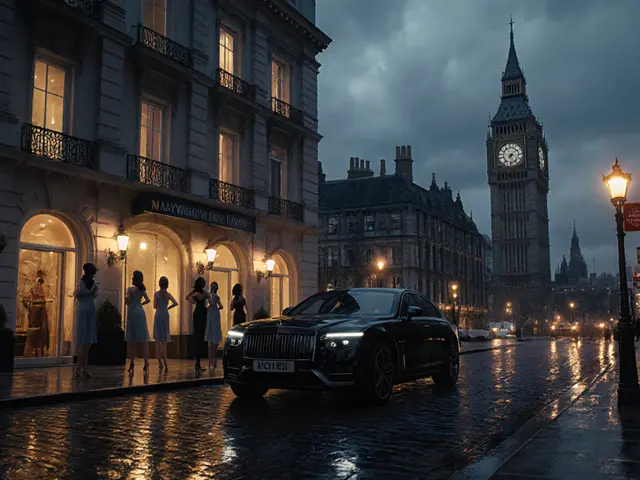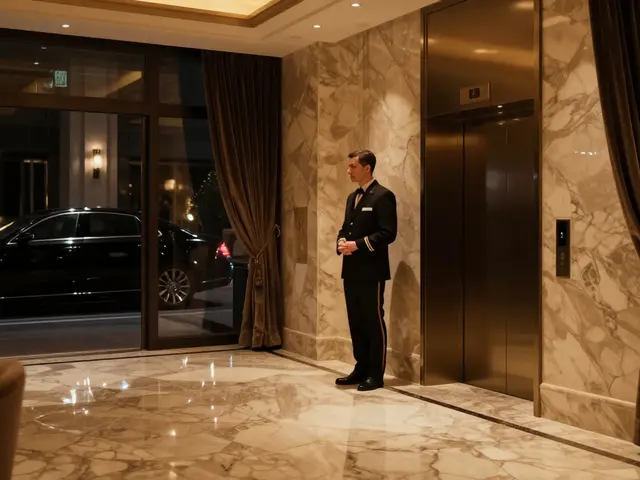If you picture London’s escort scene as dim alleys and hush-hush phone boxes, you’re a decade behind. The real action sits in private members’ clubs, five-star lobbies, and calendar hotspots like Frieze, Wimbledon, and Fashion Week. High-net-worth visitors want polished company they can introduce at dinner without sweating the small stuff: discretion, manners, conversation, and the ability to blend in anywhere. This piece maps that world-what “elite” actually means in London, how the ecosystem runs in 2025, the law you can’t ignore, and the softer skills that set top companions apart. No glamorizing, no coyness-just a clear-eyed tour.
- TL;DR: London’s high-class companions operate at the intersection of luxury hospitality, social calendars, and strict discretion.
- Rates reflect more than looks: soft skills, reliability, languages, and time scarcity move the needle.
- Legally, selling sex isn’t illegal in England and Wales, but many related activities are-know the boundaries.
- The 2025 scene leans on stronger screening, encrypted comms, and reputational trust over flashy ads.
- Etiquette, consent, and safety are the spine of the premium market; pressure tactics and shortcuts backfire fast.
London’s “elite escort” scene in 2025: what it is, why it’s growing, and the rules of the road
“Elite” gets thrown around a lot. In London, it means companions who operate like top-tier hospitality pros: punctual, discreet, travel-ready, and fluent in the social codes of Mayfair and St. James’s. Think dinner at Scott’s, a box at Centre Court, or a vernissage where small talk about contemporary art isn’t a stretch. The work is companionship-first, not chaos-first. Agencies and independents that thrive here keep operations tight: advance scheduling, clear boundaries, clean paperwork, and an obsession with privacy.
Why the rise? Three forces. First, London’s wealth gravity. The Knight Frank Wealth Report (2024) still places London among the top cities for ultra-wealthy residents and visitors. Second, the event calendar keeps the city peaking year-round-Art Week, the Season, Jubilee-style state events, and a luxury dining scene that never sleeps. Third, the concierge economy. Clients used to seamless experiences-the right table, the right driver, the right seats-expect the same composure and service standards from company. That pushes rates up and weeds out amateurs.
Legal reality matters. In England and Wales, selling sex is not illegal, but several related activities are. Brothel-keeping, pimping, controlling prostitution for gain, kerb-crawling, and public solicitation are criminal offences. Paying for sex with someone who has been subjected to force is a strict liability offence under the Policing and Crime Act 2009. The Crown Prosecution Service guidance (updated 2023) spells this out in plain terms. Advertising is policed too: the UK’s ASA enforces the CAP Code around harm, offence, and misleading claims. Platforms face fresh compliance duties under the Online Safety Act 2023, with Ofcom rules rolling out through 2024-2025. Bottom line: discretion isn’t only a vibe, it’s risk management.
Money talk, without the fluff. Rates reflect scarcity and skill, not only looks. Language ability (Arabic, Mandarin, Russian, French), easy manners in upscale spaces, reliability, travel readiness, and the ability to switch registers between boardroom dinner and post-show drinks-these raise fees. So do reputational moats. A companion or agency with a long record of no-drama bookings charges more for the predictability alone. Yes, numbers vary, but the premium end in London consistently prices above mass-market. Keep in mind: time is the true product, and time gets scarce around major events.
| What premium looks like | Typical London markers (2025) | Why it matters |
|---|---|---|
| Service scope | Companionship for dinners, events, travel-ready; clear boundaries pre-agreed | Reduces ambiguity and misaligned expectations |
| Rates and time bands | Indicative: 2 hours £600-£1,500; dinner date £1,000-£3,000; overnight £3,000-£6,000+ | Scarcity, skills, and event timing drive bands; not one-size-fits-all |
| Screening | Light KYC, deposits, references; polite but firm verification | Safety and trust for both sides; filters unserious inquiries |
| Communication | Encrypted messaging, clear etiquette, no explicit talk in public or on social feeds | Protects privacy and avoids legal/PR blowback |
| Cancellations | 48-72 hours for partial refunds; tighter windows around major events | Time has opportunity cost; policies enforce fairness |
| Reputation | Verified photos, consistent presentation, long-term clients, low-drama history | Trust premium commands higher rates |
Two small but important notes. First, tax. Many independents register as self-employed and report income to HMRC; that’s not optional. Second, safety. National Ugly Mugs (NUM) operates alerts and support for workers in the UK-widely respected and used. When you hear “elite,” think “safety-first and paperwork-clean,” not “anything goes.”
As for the “why now,” the post-pandemic appetite for curated experiences is real. People who plan their tasting menus weeks ahead do the same with companionship. The old impulse model-late-night calls, vague arrangements-has faded at the top end. The 2025 market favors vetted connections, stable schedules, and clear boundaries.

How the ecosystem actually works: agencies, independents, clients, etiquette, and safety
Agencies and independents both thrive in London, but they solve different problems. Agencies act like boutique talent managers: they field inquiries, screen clients, route diaries, and handle logistics. The best ones keep a small roster and say no as often as they say yes. Independents call their own shots and keep their own calendars. Many build a personal brand through smart photography, consistent styling, and tight copy. At the premium end, both models converge on similar rules: deposits, firm boundaries, clear house style, and discretion.
Client profiles aren’t one note. You see finance and tech, visiting execs, long-stay consultants, sometimes couples, and sometimes women booking for women. Reasons vary: event company, after-dinner conversation, or a plus-one who won’t derail a serious evening. The common thread is composure-someone who won’t wobble when a CEO pulls up a chair, who can be warm without being indiscreet, and who understands that a silent phone is the best phone in a private club.
Etiquette is the backbone. A few simple rules shape the premium market:
- Clarity beats coyness. Agree time, scope, and boundaries in advance. Do not try to renegotiate in person.
- Consent is a full-sentence word. If it’s not an enthusiastic yes, it’s a no. Alcohol doesn’t change that.
- Discretion is mutual. No names in public, no photos, no social media clues, and never talk shop in a lobby.
- Timekeeping matters. Arriving late or overrunning is bad form; respect the clock like you would with any creator or consultant.
- Hygiene and manners aren’t optional. London is dress-coded; blend with the venue.
- Gifts and tips: the UK isn’t the US; ask politely what’s comfortable or stick to agreed fees. Many prefer a simple “thank you” and clean settlement.
Safety isn’t a side issue. It’s the issue. Top companions use encrypted chat, keep a trusted person informed of movements, and lean on screening. Clients who belong in the premium tier embrace that. Think of screening as the velvet rope: it’s there to keep the room nice for everyone. Standard red lines include no recording, no unapproved guests, no drugs, and no pressure. Breaking any of these is a one-way ticket to a permanent no.
Because 2025 brought sharper online risks-deepfake images, recycled profiles, identity theft-verification got smarter. Look for consistent photography across time (hair, styling, locations), short video intros with today’s date when appropriate, and professional references that actually verify. Serious operators are also careful with ID: enough to prove adulthood and safety; not so much that sensitive data floats around unsecured. The balance is a craft.
Here’s a simple, ethical due-diligence flow for anyone researching this world without crossing legal lines. It’s not a booking guide. It’s a sanity check:
- Read the law. Start with CPS guidance on prostitution and exploitation. Know what is, and isn’t, legal in England and Wales.
- Assess presentation. Stolen photos are common. Reverse image search can catch copy-paste glamour. Inconsistencies are a red flag.
- Look for mature policies. Clear boundaries, cancellations, deposits, and safety language signal professionalism.
- Check language tone. Premium operators write like people, not spam-direct, calm, and consistent.
- Watch for consent-first cues. Mentions of safe practices, sober judgement, and opt-outs are green flags.
- If anything feels rushed or pushy, walk away. Pressure is never part of a premium experience.
Red flags that scream “pass”:
- Unreal rates for the venue or event (Wimbledon week at budget prices).
- Hard sells, last-minute secrecy, or refusal to discuss boundaries.
- Photos that show different body features across images (hands vs. face vs. neck lines that don’t match).
- Requests for risky data (corporate IDs, credit card photos) or untraceable transfers with no policy.
- Any hint of third-party control or coercion. If you suspect exploitation, disengage and report.
And green signals worth trusting:
- Stable online footprint over time, not a new alias every month.
- House style: consistent wardrobe, settings, and copy voice.
- Clear compliance: over-18 statements, respectful language, and no illegal promises.
- Realistic time limits-no “endless” nights or vague marathon claims.
- Polite screening that respects privacy while protecting safety.
I’ll say the quiet part out loud: the premium tier polices itself. One bad night can shut doors across half the city. Word moves via private networks-concierges, members’ clubs, PAs, and yes, companions who compare notes. That silent system is why the top end stays calm. It’s also why the phrase elite escort London signals more about trust and temperament than anything else.

Myths, media, data you can use, and where this is headed
Pop culture makes two mistakes: turning companions into either tragic figures or miracle workers. Reality lives in the middle. At the high end, it’s a service job with a demanding client base. It rewards soft skills, composure, health, and rest-yes, rest. Burnout is real, and the smart ones build downtime into schedules. Agencies that last provide support, not just calendars.
Myth: it’s all about sex. In this tier, a big slice is dinner-and-event companionship where discretion and conversation carry the night. Myth: the money is effortless. The best treat this like a performance career-training, wardrobe, grooming, scheduling, recovery, and constant risk management. Myth: NDAs are a magic cloak. They aren’t. They deter gossip but don’t excuse bad behavior or illegal acts. Consent, not paperwork, is the actual guardrail.
Data signals to keep you oriented in 2025:
- Event spikes are real. Wimbledon, Royal Ascot, Frieze, and Art Basel week in Europe bleed demand into London before and after.
- Weekdays vs. weekends split. Dinners midweek, longer bookings on weekends, and overnights clustered around big matches and shows.
- Currency swings nudge inbound demand. Some years the pound’s strength trims US bookings; other years, the exchange rate makes London feel like value.
- Wealth concentration isn’t fading. While the UK saw net outflows of millionaires in some recent years (Henley Private Wealth Migration Report, 2024), London still ranks among the most desired hubs for the ultra-wealthy.
Technology will shape the next two years. Expect more verified media (short clips with real-time cues), agency-managed scheduling portals with 2FA, and tighter age/ID controls prompted by the Online Safety Act rollout. Also expect smarter fraud. Deepfake selfies and AI-written bios already muddy the waters-hence the renewed value of reputational networks and in-person referrals within lawful bounds.
Ethics and law must sit at the center. Legitimate operators draw hard lines around exploitation. The CPS guidance is plain: any suspicion of force, deception, or control is not only immoral-it’s criminal. Workers lean on groups like National Ugly Mugs for alerts and support. Clients who truly belong at this level don’t test boundaries; they protect them.
Mini‑FAQ
- Is this legal in London? Selling sex isn’t illegal in England and Wales, but many connected activities are. If you’re unsure about anything, don’t do it. Read the CPS guidance.
- How are rates set? Time scarcity, event timing, language skills, and reputation. Agencies price for logistics and brand; independents price for autonomy and scarcity.
- Are NDAs standard? Sometimes, especially with public figures, but consent and respectful behavior matter more than paperwork.
- Do couples ever book? Yes, at the premium end. Boundaries get discussed carefully in advance.
- What about tips? London isn’t tip-forward. Some accept gifts; many prefer clean settlement and a sincere thank you.
- What’s a normal cancellation policy? 48-72 hours is common; tighter around big events. Expect deposits for peak dates.
- How do operators handle safety? Screening, encrypted comms, check-ins with a trusted person, and firm red lines around recording and drugs.
Next steps and troubleshooting (for different readers):
- Curious reader: If you want to learn more, read CPS legal guidance (prostitution and exploitation), ASA’s CAP Code basics, and credible reporting from UK outlets on the adult sector.
- Journalist or researcher: Don’t rely on hearsay. Cross-check claims with primary sources and, when possible, anonymized interviews vetted by editors and support organizations.
- Traveler to London: Respect the law, respect people, and respect your own privacy. If anything feels off, step away. No booking or experience is worth legal trouble or harm.
- Worker safety allies: National Ugly Mugs is a key resource. Keep conversations anchored in consent and exploitation prevention.
One last human note from me: the premium end endures because it filters for kindness and calm under pressure. You can’t fake that. In a city that runs on reputation, the quietest players often win.









